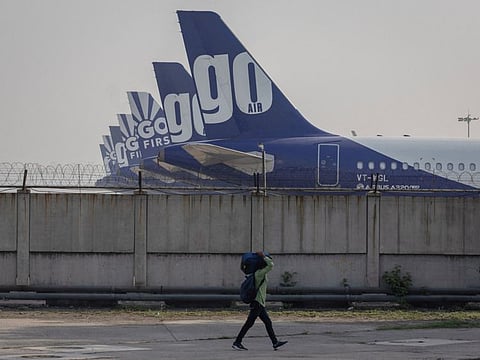Aviation leasing watchdog issues warning to India over plane repossessions
AWG is a not-for-profit entity co-chaired by Airbus and Boeing

New Delhi: A global aviation leasing watchdog has put India on a watchlist with a negative outlook saying it failed to comply with international aircraft repossession norms after airline Go First was granted bankruptcy protection.
The move from the Aviation Working Group (AWG), a UK-based entity that monitors leasing and financing laws on behalf of planemakers and lessors, could raise leasing costs for Indian airlines and further jolt lessors’ confidence in the world’s third-largest domestic aviation market.
The inability to repossess Go First’s planes in a timely manner comes as Indian air travel is booming and hundreds of new jets have been ordered by local carriers, who regularly turn to lessors to help finance plane purchases.
Go Airlines (India) filed for bankruptcy protection last week, blaming “faulty” Pratt & Whitney (P&W) engines for the grounding of about half its 54 Airbus A320neos. P&W, part of Raytheon Technologies, says the airline’s claims are without evidence.
In granting protection, the Indian tribunal ordered a freeze on Go First’s assets even though some lessors had already terminated their leases with the airline and placed requests with the aviation regulator to repossess more than 40 planes.
Failure to process deregistration applications for aircraft with leases terminated before the freeze was imposed, “results in a negative outlook”, AWG said in its watchlist notice.
The government and the aviation regulator were not immediately available to comment.
Go First’s lessors include SMBC Aviation Capital, CDB Aviation’s GY Aviation Leasing, Jackson Square Aviation and Bank of China Aviation.
The negative outlook by AWG is under what it calls the compliance index, which addresses whether requirements under the Cape Town Convention, an international treaty on plane repossessions, are met in practice.
India’s score has been reduced to 3 from 3.5 earlier.
India made it easier for lessors to take back planes if airlines default on payments after joining the Cape Town Convention in 2008, but bankruptcy protection supersedes repossession requests under its local laws.
AWG is a not-for-profit entity co-chaired by Airbus and Boeing. Its members include major lessors and financial institutions like Aircastle, BOC Aviation, SMBC Aviation Capital, Deutsche Bank, Goldman Sachs and Morgan Stanley.



